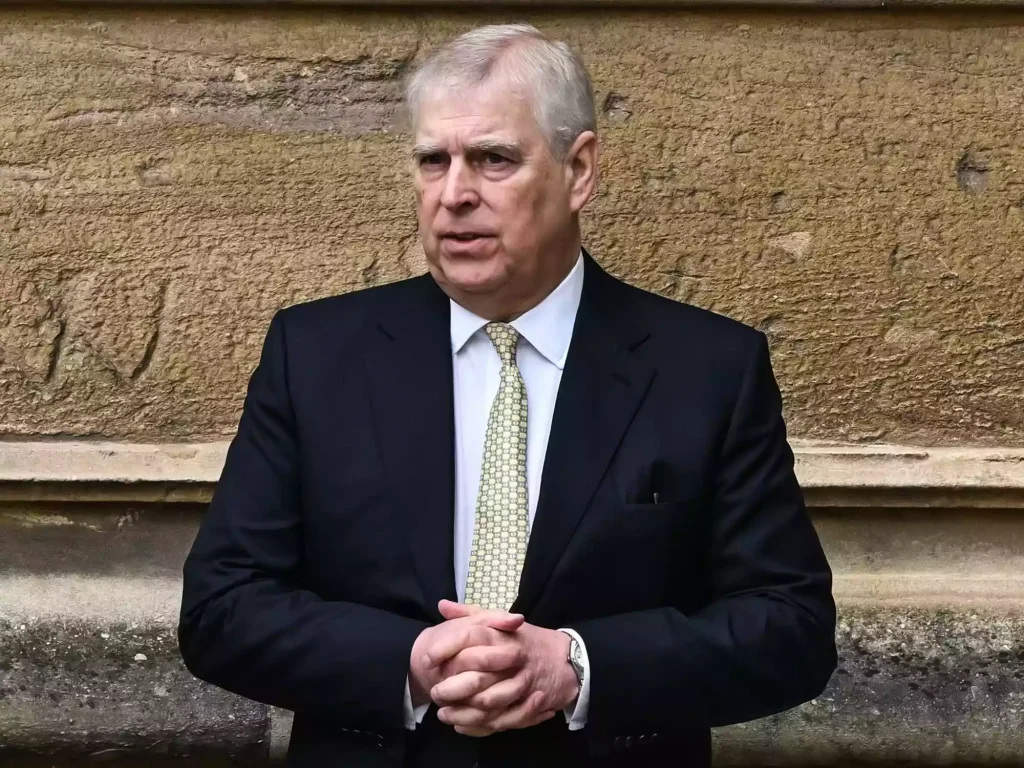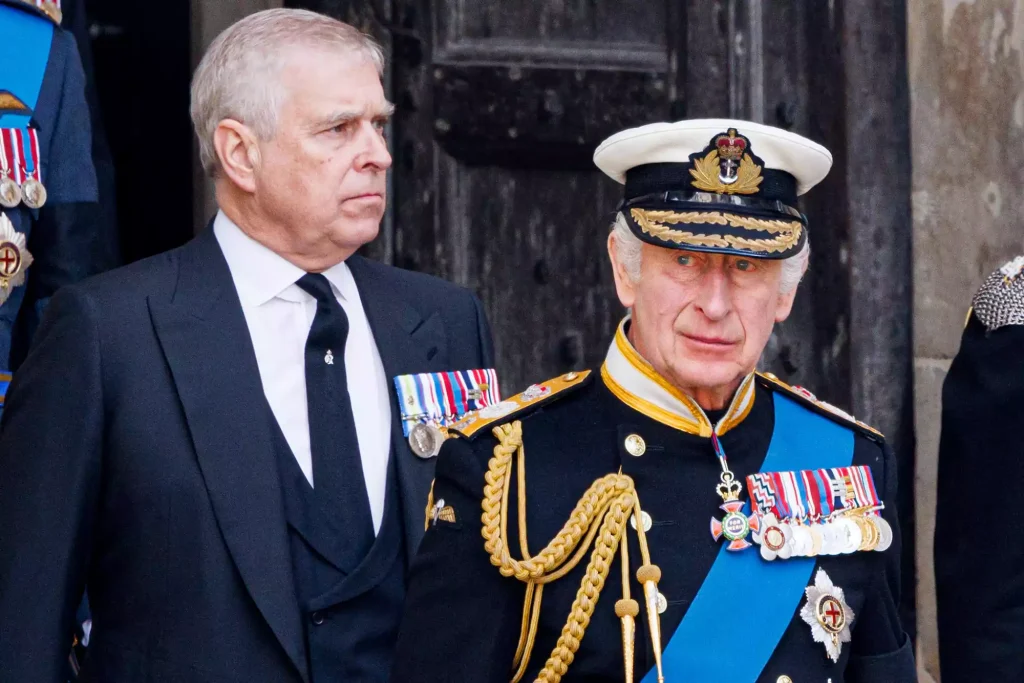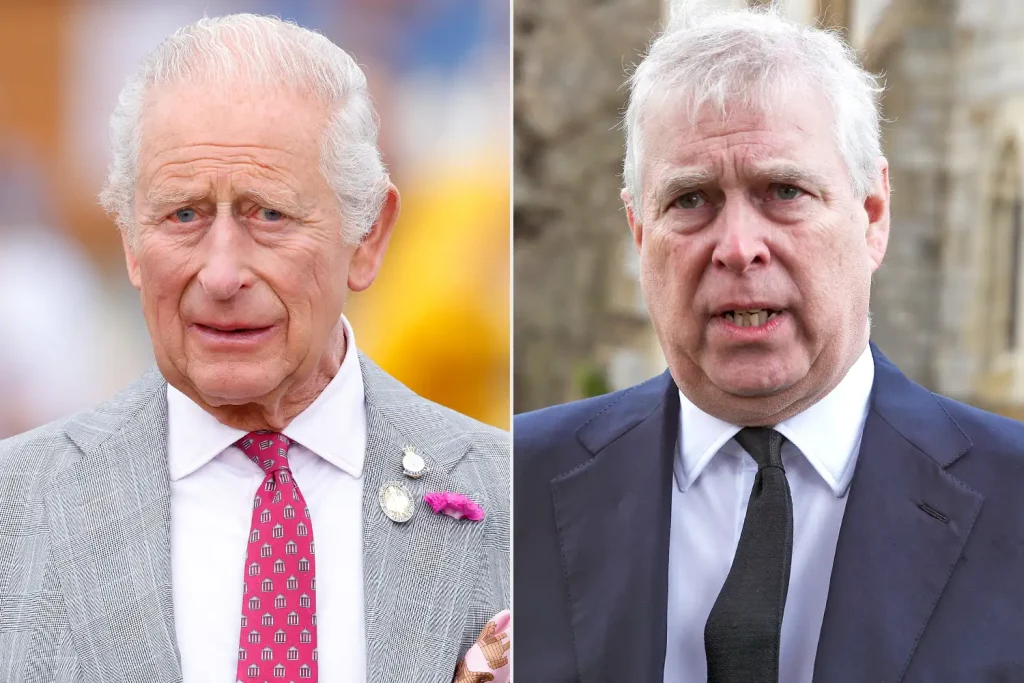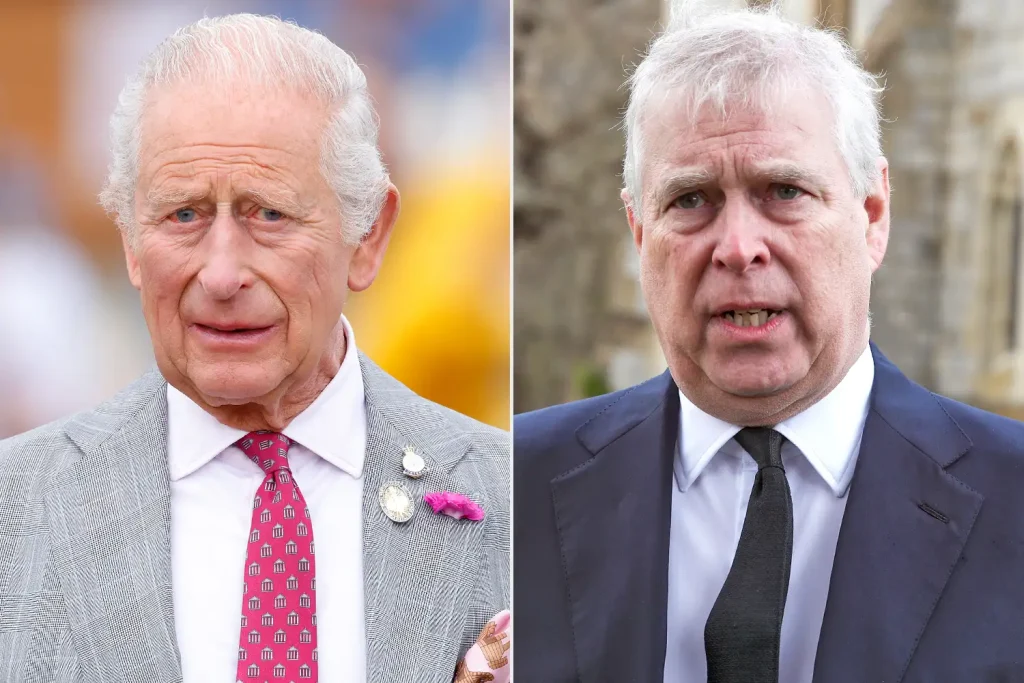King Charles Officially Removes Prince Andrew’s Royal Titles and Privileges — He Will Now Be Known Simply as Andrew Mountbatten-Windsor
In one of the most significant royal decisions in recent memory, King Charles III has formally stripped his brother, Prince Andrew, of all remaining royal titles, styles, and privileges. The announcement marks a defining moment not only for the monarchy but also for the royal family’s ongoing attempt to distance itself from the controversies that have shadowed the Duke of York in recent years.

Buckingham Palace confirmed that Andrew will no longer hold the title of “Prince,” nor will he retain the “His Royal Highness” style that traditionally comes with being a senior member of the royal family. Going forward, he will simply be known as Andrew Mountbatten-Windsor — his legal surname and a clear symbol of his return to private citizen status. The decision, though widely expected by royal observers, still sent shockwaves across Britain, as it officially severs Andrew’s public identity from the institution he was born into.
Sources close to the palace described the move as one of “finality and accountability.” King Charles, known for his measured and deliberate approach, reportedly made the decision after months of internal discussions with senior advisors and members of his inner circle. While the royal family has traditionally handled internal matters with quiet discretion, this moment required public clarity. “The King believes in duty above all,” one palace insider said. “This is about preserving the dignity and future of the Crown.”

For Andrew, this change represents a permanent shift in his relationship with the monarchy. Once celebrated as a decorated naval officer and the Queen’s beloved second son, his public reputation has been overshadowed for years by legal troubles, controversy, and scandal. Though he stepped down from royal duties in 2019, this latest move by his brother marks the end of his royal role entirely. He will no longer carry out official engagements, represent the Crown, or use royal residences as his primary base of operations.
Observers note that the decision reflects King Charles’s broader vision for a “slimmed-down monarchy,” one focused on transparency and moral integrity. Since ascending the throne, Charles has worked to modernize the royal institution — cutting costs, streamlining public roles, and emphasizing responsibility among the remaining working royals. In that context, removing Andrew’s remaining titles was seen as a necessary, though painful, act of leadership.
Reactions from the public have been mixed. Many praised the King for showing strength and clarity, saying it demonstrates that accountability applies to everyone, regardless of status. Others, however, expressed sympathy for Andrew, noting the deep personal cost of such a public demotion within his own family. “It’s tragic,” one royal historian commented. “No one can ignore his mistakes, but it’s also the story of a man who lost everything he was born to be.”

Inside the royal family, the move is said to have brought quiet tension. Princesses Beatrice and Eugenie, Andrew’s daughters, are reportedly “heartbroken” but remain loyal to their father. While both continue to maintain cordial ties with the King and Queen Camilla, the atmosphere at royal gatherings will likely never be the same. The Queen’s passing in 2022 had been a unifying moment for the family, but with this decision, a new line has been drawn — one that firmly defines who remains part of the monarchy’s official future and who does not.
Despite the loss of his titles, Andrew is expected to continue living on the Windsor estate, though his public life will remain minimal. Friends describe him as “resigned but deeply saddened,” and it’s believed that his relationship with King Charles, though strained, remains civil. “They are brothers first and foremost,” said a source familiar with the situation. “But the King has to think about the Crown, not sentiment.”
In a monarchy built on symbolism, the removal of titles carries enormous weight. It signals a clear message that reputation and integrity are essential to maintaining the public’s trust — even when it involves family. For King Charles, this moment reinforces his reign’s guiding principle: that the monarchy must evolve to survive.
As Andrew Mountbatten-Windsor begins this new chapter, the royal family moves forward under a King determined to redefine what it means to serve with honor. And while the name may have changed, the consequences of this royal reckoning will echo for generations to come.



